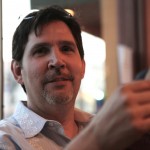July 17, 2012 - By David A. Mayen, Founder/CEO - No Comments [edit] - Posted in Home Page Enabled
Photographed by: Bill Frakes/SI
What does Tiger Woods, Olympic figure skater Johnny Weirand and 12 time Olympic Gold Medalist Dara Torre s have in common? They all occasionally use the prescription sleep medication Ambien before the big gig.
"Restorative rest is the definitive factor in who wins and who losses in sports". says David Dubin, MD, medical director of the Sleep Recovery Centers, Inc (Dr. Dubin is presently working with pro NFL players using neurofeedback for injuries related to multiple concussions).
What pro players may be missing is the fact that according to a recent Scripps research study, taking as little as 18 Ambien per year has an almost five fold increase for the co-factors for premature death.
The study, headed by Dr. Daniel Kripke used past medical records to reverse engineer the risk factors, compared to control groups not taking sleeping pills. The largest risk-factor involved in taking a mere dozen and a half over a 12 month period? According to the study, a 35% increase in getting"cancer.
Other side effects included:
- Headaches
- Joint pain
- Dangerous sleepwalking incidents that may include eating, working and driving
- Drug interactions, especially with alcohol
- Unsafe for pregnancy
- Memory loss
- Rebound insomnia (little-to-no sleep for 4-7 nights).
- Addiction
With Gold Medalist Dara Torres, it seems her risk may be lower due to limited competitions within her field of endeavor, but what about seasonal athletes with twenty or more games per year?
The costs could greatly out weight the benefits. Non-athletes taking a variety of sleeping pills nightly report feeling like what they were getting was "fake sleep", meaning that waking up still exhausted is more common than not. For a pro player, this can culminate into reduced motivation, concentration and the fine motor skills needed to reduce the likelihood of the multimillion-dollar-contract-busting injury that often ends an otherwise promising pro career.
One has only to look north to the Canadian Olympic Team to see that they're are high tech alternatives to achieving proper, restive recovery of sleep and stamina during an athletes down hours. Thought Technology, Ltd., the leading supplier to the Canadian team uses a type of brainwave training called neurofeedback to help their client competitors get well rested and in the zone during needed peak periods.
It works like this: The human brain has a symphony of electrical impulses coursing through itself all day every day. With professional stress, hereditary factors and and past traumas--both large and small--this EEG activity gets out of balance. This is the reason some players have a harder time with pre-game jitters than others. It not necessarily a lack of confidence, but high beta activity which makes getting proper sleep before a game next to impossible. But what if the brain of that player could be taught to reduce the intensity of that problematic high beta activity? The beauty of neurofeedback is that the athletic brain can be trained to do just that. No drugs. Little to no side effects and the results are lasting. One study done with ADHD children showed improvements with attention and concentration with 30 sessions of neurofeedback. The interesting thing was that the researchers, after stopping the treatments, continued to test the children for attention and found that not only did the results hold, but the test focus and attention continued to improve a full five years after the cessation of neurofeedback.
Pro and Olympic athletes work 10 times harder than most of us to achieve their little piece of greatness. With a little insight and looking to other pro players for healthier alternatives to sleeping better, perhaps many more would make that grand leap of endurance from greatness to human legend.






